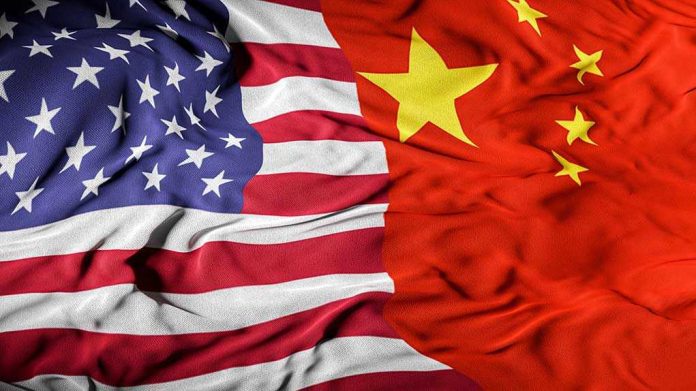
As Chinese-backed companies quietly purchase hundreds of American schools, parents and lawmakers warn that foreign influence is threatening our children’s education and the very foundation of our national values.
Story Snapshot
- Over 240 U.S. private schools are now owned by Chinese-backed entities, raising alarms about foreign control in American classrooms.
- Chinese government-linked funding has poured at least $17 million into U.S. public K-12 schools since 2023, sparking congressional investigations.
- Lawmakers and security experts fear data privacy risks, ideological influence, and erosion of U.S. educational independence.
- Legislative proposals to restrict or ban Chinese funding in American education are gaining bipartisan momentum in 2025.
Chinese-Backed Companies Expand Control Over American Schools
Since 2017, Chinese companies have steadily acquired American private K-12 schools, starting with Florida Preparatory Academy and now totaling more than 240 schools across 19 states. The most prominent, Spring Education Group, is backed by Chinese capital and operates through U.S.-based subsidiaries to mask its ultimate ownership. These acquisitions have accelerated over the past two years, drawing scrutiny from parents, policymakers, and security experts who fear the impact on curriculum, tuition, and American values.
Financial pressures faced by many private schools have made them vulnerable to foreign buyers offering much-needed investment. While some administrators defend these deals as necessary for survival, critics argue that accepting money from entities ultimately controlled by the Chinese Communist Party risks exposing students to propaganda, data collection, and policies that may run counter to American interests. Similar trends have emerged in the UK and Australia, where Chinese-linked acquisitions have sparked political backlash and regulatory reviews.
Chinese Government Strategy: Ideological Influence and Data Access
The Chinese government has openly prioritized spreading “excellent Chinese culture” abroad through education, as outlined in a 2019 Ministry of Education directive. This strategy builds on the model of Confucius Institutes—now mostly closed in the U.S. due to national security concerns—but shifts focus to K-12 schools and direct funding. Congressional investigators have uncovered at least $17 million in Chinese government-linked funding for U.S. public schools since 2023, fueling concerns about ideological influence and access to sensitive data, including information about military families and local communities.
Security experts highlight that China’s 2017 National Intelligence Law compels Chinese companies to cooperate with state intelligence agencies, raising the risk that student data or proprietary educational materials could be misused. Parents and local communities often have little say in these deals, as decisions are made at the administrative or board level, sometimes with ownership obscured by complex corporate structures. These revelations have prompted calls for greater transparency and legislative action to safeguard American classrooms.
Legislative Pushback and Policy Responses in 2025
In response to mounting concerns, U.S. lawmakers from both parties have introduced bills to ban or restrict Chinese government funding and ownership in American education. Reps. Dave Joyce and Michael Rulli have led efforts to prohibit Chinese-linked donations to public schools, while Senators Tom Cotton and Bill Cassidy have raised alarms about the national security implications of foreign control over educational assets. Congressional hearings and media investigations in 2025 have intensified scrutiny of these arrangements, with some Chinese-owned companies divesting from high-profile assets under political pressure.
Despite these moves, the debate continues over the balance between openness to international investment and the need to protect American values and security. Critics warn that failing to act could erode educational integrity, threaten data privacy, and weaken the next generation’s understanding of foundational principles like the Constitution and individual liberty. Supporters of international partnerships argue that cross-cultural exchange has benefits, but the risks of foreign state-linked control in education have become too glaring to ignore.
Impact on Families and the Future of U.S. Education
Parents and students at affected schools face uncertainty about the future of their education, with questions about curriculum changes, tuition, and the influence of foreign investors. Some families report lower tuition or enhanced facilities at Chinese-owned schools, while others worry about subtle shifts in classroom content and a chilling effect on academic freedom. School administrators must weigh financial stability against the potential loss of trust and autonomy. The broader educational community is watching closely as new regulations and reporting requirements are debated, signaling a turning point in how America safeguards its schools from foreign influence.
Why is America selling its schools to China? – UnHerd https://t.co/hhMMvlMfsm
— Rubio Republicanism (@Texas4Rubio) November 21, 2025
While the full extent of ideological influence remains contested, there is clear consensus on the scale of Chinese financial involvement and the urgent need for vigilance. As Congress considers stricter oversight and the Trump administration restores constitutional priorities, many conservatives see this moment as a chance to reclaim control over American education and defend the nation’s values for future generations.
Sources:
Is Red Fred Educating Your Kids? (UnHerd)
Foreign Funding in U.S. Schools (DefendingEd)
The US Academic Partnership with China Under Strain for Years Faces Its Biggest Threat (WTOP)
Government Data on Funding and Confucius Institutes (U.S. House Majority Leader)
Keep China Out of US Schools: 2 US Reps for Valley Propose (Salem News)














